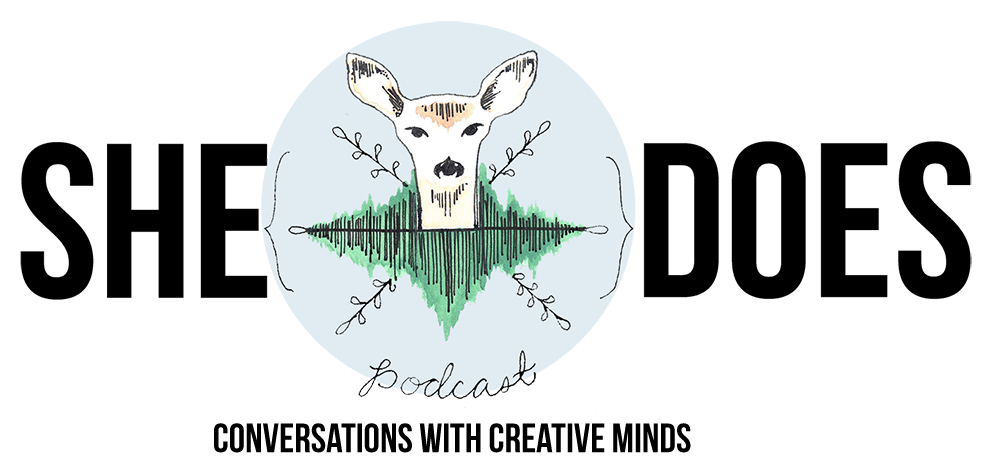MUSIC FEATURED IN EPISODE 9
Curated by Elaine Sheldon
There's no way you won't fall in love with Casey Dienel's voice. But take it from me, falling in love with her, as a person, is fairly easy too. I picked up the phone to chat with Casey for an hour, and within five minutes I felt like I was catching up with a good friend. She's full of talent and experience, but it was refreshing to see her humility and gratitude come through when talking about dealing with depression and sharing funny stories from her early career (HINT: listen to the last four minutes of Episode 9 to hear). You may know Casey from her hit Icarus, which has had a life of its own, including being featured on Project Runway. But spend 20 minutes with her last two albums, Kairos and Baby, and you can hear Casey's life bleeding into her music. They are vastly different in arrangement and tone. Pitchfork said it best, "Kairos was woozy both instrumentally and conceptually, leaning toward gossamer dream pop. Baby, her newest, sheds the downtempo beats of Kairos, experimenting with more jagged percussion and orchestral flourishes, notably horns." Casey explains the deeply personal journey of making Baby, among other tidbits. We're greatly honored to showcase Casey's talent in Episode 9 with Linda Pan.
Q&A
What is your process for writing? Every time I write it's like I am reinventing the process. I don't have one strict method and I'm not superstitious at all. I am always writing, even if I'm on an album cycle, I am still writing on my days off. I write a lot when I'm on tour. I just always keep it going so that way I'm not stressing the source. When I have writer's block it's usually because I'm getting antsy. So I found the best way to prevent that anxiety is to be pretty casual about it.
You've toured around the world, so what piece of advice would you give to a young producer? Do it yourself, as much as possible. If you want to go on tour, and you're waiting for someone else to book it, don't wait. Just figure it out. If you want to make a record, and don't know anyone, it's so easy now to get a student copy of Ableton, Garage Band or Logic and just bang it out. Especially on the technology side, women aren't encouraged enough to take that on. I really think that the more girls take that stuff on themselves (like writing your own beats) the better it's going to be for us. Alot of times they just assume you don't know what you're doing. And the power of assumption is so insidious and quiet. And over the years, you will be like, 'Am I crazy?' But you're not crazy. When you walk into a studio and they're talking about microphones and then they're like, 'Let's just talk about clothes now,' because you're in the room.
Baby is a very personal album, how does it feel to look back on it? I feel like Baby was this really cathartic work for me and it healed a lot of things that I didn't even realize were in pain. When I take a step back and look at that work, I'm like 'Holy shit, that person was really, really depressed and unhappy.' I'm also extremely grateful that I'm not there anymore. Like when you see a photo of yourself when you were a teenager and really depressed, and you are like "God...thank you to everybody who asked me how I was doing.' But here's the thing with mental health, you're never all better. But I think it's good to talk about because I think a lot of people who have depression are really embarrassed by it.
LINKS:
LISTEN: White Hinterland on SoundCloud
READ: Pitchfork Reviews White Hinterland
CONNECT: Casey on Twitter, White Hinterland Official Website
WATCH: White Hinterland on VEVO

